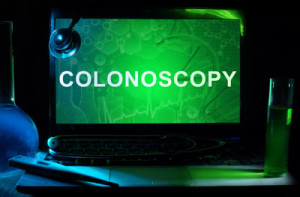 Colonoscopies are a very important screening and diagnostic tool, and though it’s recommended that at the age of about 50, people have them regularly, there is no age limit on when one might be necessary. However, people are often very apprehensive about a colonoscopy, even putting off having one done even though they are proven to help prevent the development of colon cancer. Much of that apprehensiveness stems from uncertainty of what to expect from the procedure; for some people, it might help to know a little more about it.
Colonoscopies are a very important screening and diagnostic tool, and though it’s recommended that at the age of about 50, people have them regularly, there is no age limit on when one might be necessary. However, people are often very apprehensive about a colonoscopy, even putting off having one done even though they are proven to help prevent the development of colon cancer. Much of that apprehensiveness stems from uncertainty of what to expect from the procedure; for some people, it might help to know a little more about it.
Before the exam, patients are required to clean out their colon. This is so that there is nothing that can obscure the view and helps the colonoscopy be most effective. Patients might be asked to follow a special diet, take a laxative, or even use an enema kit. Generally, the intention is to remove solid waste from the bowel, so the diet will be primarily liquid. If there is debris left in the colon, the colonoscopy might last longer because the doctor has to spend the time clearing it away; or the patient might be asked to repeat the process. It’s better to do it right the first time and limit the discomfort.
The colonoscopy procedure itself usually lasts from 20 minutes to an hour. Patients are sedated and often given pain medication to reduce discomfort. The sedative usually puts the patient into a twilight sleep, so people often report no memory of the procedure itself. They are asked to lie on their side, with knees drawn upward. The doctor will insert the scope through the anus and slowly and carefully advance it through the colon. The scope itself is a long tube with a camera at the end, so the doctor can use the camera both to examine the inside lining of the colon for polyps or cancers and to help navigate the scope.
Afterward, patients spend some time recovering from the sedative. There may be a bit of mild discomfort lingering from the procedure, but this usually passes quickly. If anything was discovered in the exam, or samples were taken, the doctor may insist on a special diet temporarily. Patients should expect to take the rest of the day off of work or other activities and just rest. But patients should be back to normal relatively quickly after that.
Colon cancer is the second leading cause of cancer deaths, but colonoscopies are completely capable of detecting and helping prevent colon cancer. Be sure to consult with your doctor about when to start screening exams, and try not to worry too much about the procedure itself. If you want help finding a local doctor in the Southwest Florida area, be sure to search IPALC at www.ipalc.org/find or contact IPALC at info@ipalc.org.
Share on Facebook




 Southwest Florida Medicine.com is dedicated to bringing you the very best health information available today!
Subscribe or check back regularly!
Southwest Florida Medicine.com is dedicated to bringing you the very best health information available today!
Subscribe or check back regularly!